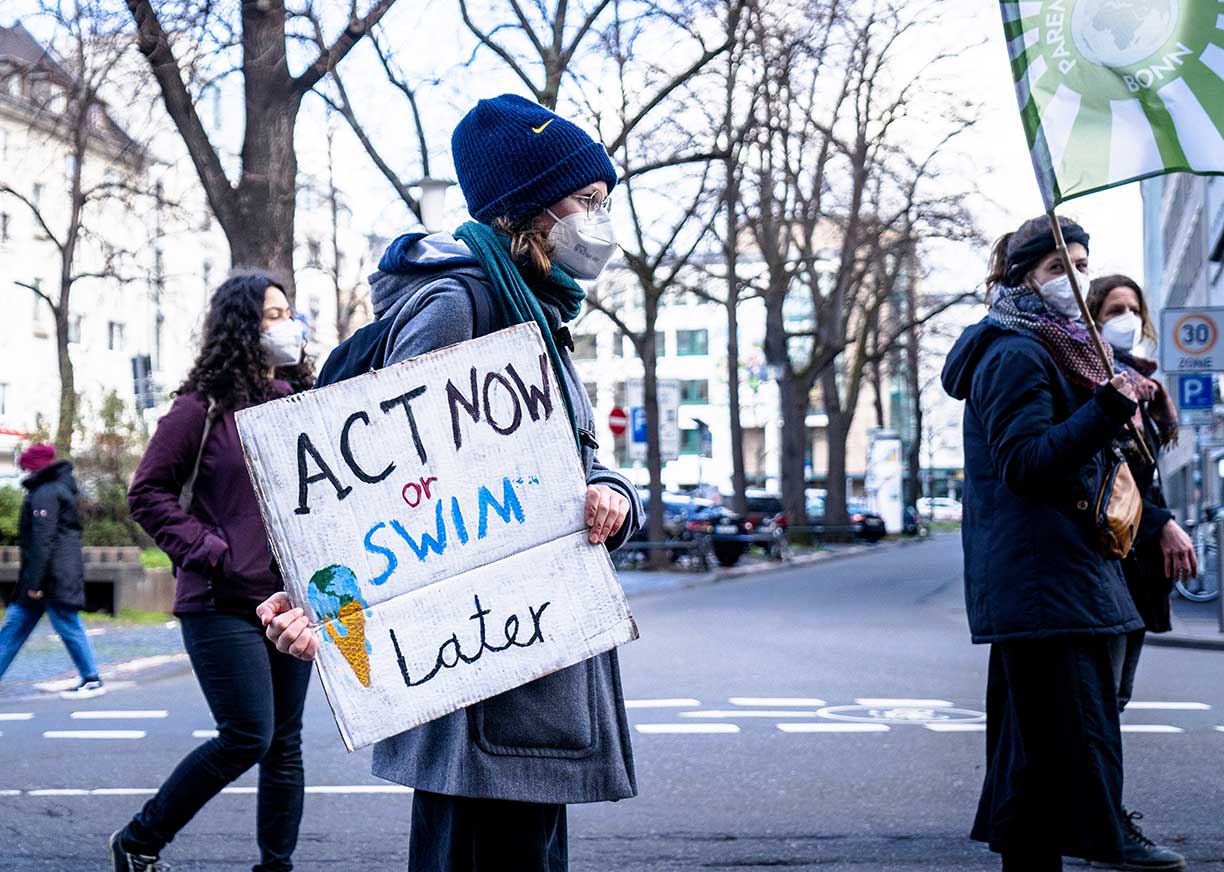What’s corruption got to do with climate change, and why should we care?

Delegates attending the COP26 meeting in Glasgow in November 2021 were entrusted with leading the global response to humanity’s greatest challenge: how can we stop the world from heating to the point it becomes uninhabitable for future generations? Hugh McFaul, Co-Director of The Open Justice Centre writes about this in his latest blog piece.
Code Red for Humanity
The extent of the challenge has been set out in the starkest of terms by the Intergovernmental Panel on Climate Change (IPCC) in their August 2021 report. They state that there is no room for doubt that climate change is the result of human activity and that the ‘scale of recent changes across the climate system …are unprecedented.’
United Nations Secretary-General, António Guterres, warned that it is now ‘code red for humanity’ and the time for delay and excuses has passed. But he also pointed out that, although the situation is serious, it is not yet hopeless, ‘if we combine forces now, we can avert climate catastrophe’.
What’s corruption got to do with it?
Combining forces means not just leaving it to the scientists to come up with a technical solution, but a concerted global political and financial effort is required, which means engaging all parts of society, and ensuring that the policies agreed at COP26 are implemented on the ground. This is where corruption comes in.
The sums of money involved in transitioning the global economy to a zero-carbon future are mind-boggling. President Biden of the USA acknowledged that more needed to be done by the rich world to help fund climate mitigation policies and announced a doubling of their commitment to climate financing to $11.4 billion per year.
Such huge sums are encouraging but it’s not only the social scientists who study corruption who are concerned that money allocated to climate projects may not always be spent in the way intended. Non-governmental organisations (NGOs) such as Transparency International and Oxfam share the concerns of activists such as the jailed Russian opposition campaigner, Alexei Navalny. Navalny wrote a letter from prison in August making the case that unless more effective action was taken against corruption, then efforts to tackle the world’s biggest problems including war, poverty, migration and the climate crisis will come to nothing.
Defining corruption
Transparency International gives a widely accepted and simple definition of corruption as ‘the abuse of entrusted power for private gain’ and offer the following examples:
A dictator bleeding their nation dry to fund a life of luxury for themselves and their family while ordinary citizens struggle without basic public services.
A doctor demanding a bribe from a patient before prescribing desperately needed medication.
An MP representing the interests of a company owned by a donor to their political party over the interests of their constituents
Corruption as a threat to climate action
We know that corruption can frustrate and distort the best intentions of governments, and in extreme cases, it can even overwhelm them. Corruption is estimated to syphon off $500 billion in funding for health services and is also degrading the environment by enabling illegal actions such as deforestation in Brazil and Peru as well as the overfishing of our seas. It can also prevent the necessary laws from being made in the first place. For example, Naomi Klein (2014) shows the influence of fossil fuels and automotive industries on the efforts of US lawmakers to tackle climate change.

What can be done?
It’s clear that corruption presents a threat to the global effort to stave off climate disaster, but Antonio Gutteres’ call for a ‘combined effort’ to protect the planet is also relevant to tackling the corruption that can scupper effective climate action. There’s space to point out three important aspects of the collective action required:
1. Political Action– As Alexi Navalny points out in his letter from prison, tackling corruption requires not only legal frameworks that are fit for purpose, but also the political will to enforce them, and importantly, political will can be shaped by pressure from voters and social movements.
2. Understanding – Just as understanding climate change requires painstaking empirical research by climate scientists which led to the latest IPCC report, we need students and academics specialising in social science disciplines such as politics, law, economics, sociology and psychology to uncover the causes, impacts and solutions to corruption.
3. Education – Greta Thunberg shows that the future of the planet depends in no small part on the leadership provided by the next generation. Providing that generation with an understanding of what corruption is and how it can be tackled is, therefore, more important than ever. The Open University’s Open Justice Centre has combined forces with the United Nations to do just that through supporting the global Education for Justice (E4J) project. E4J promotes efforts to improve anti-corruption education in universities throughout the world with the aim of supporting the next generation of professionals to better understand and tackle the corruption that could otherwise undermine efforts to protect the climate.
 Hugh McFaul
Hugh McFaul
Hugh is Director of Knowledge Exchange and Impact for the Faculty of Business and Law and Co-Director of the Open Justice Centre. He is responsible for the operation and supervision of the Open Justice Public Understanding of Law activities. Hugh is currently chair of W360 Justice in action.
Photo (Starbucks) by fikry anshor on Unsplash under Creative Commons BY-NC-SA 4.0 license
Photo (Act now, swim later) by Mika Baumeister on Unsplash under Creative Commons BY-NC-SA 4.0 license
